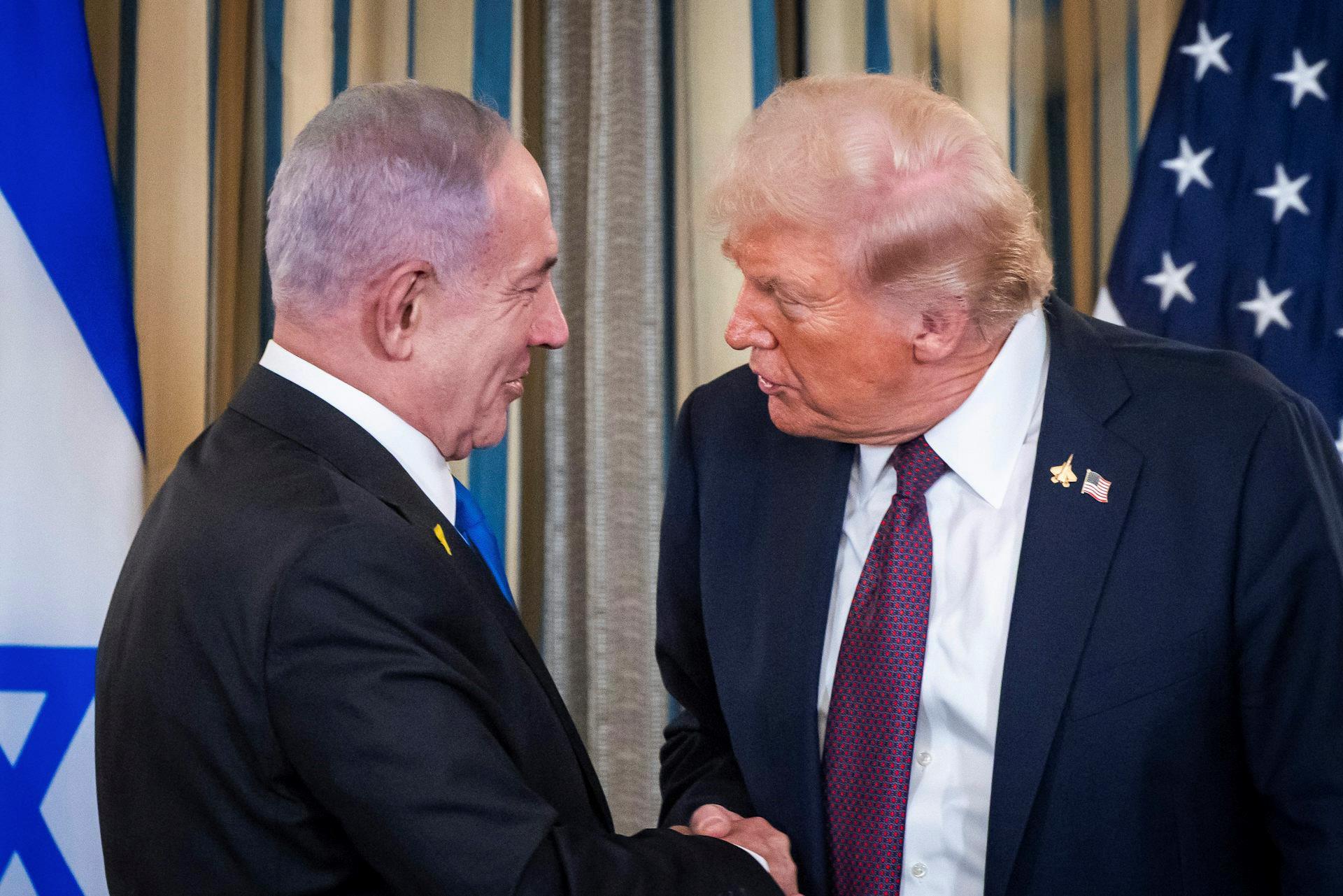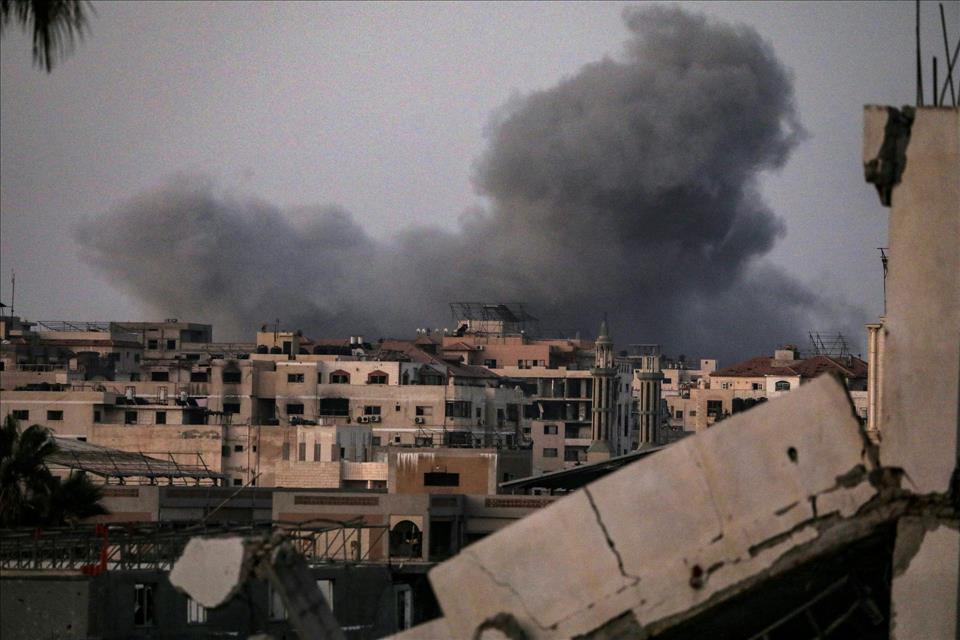Trump's 20-Point Plan For Gaza Is Deeply Flawed But It May Be The Best Offer Hamas Can Expect
The plan reportedly has the buy-in of the Arab states as well as the UK and France. It could mark a pivotal point for ending the war.
But Hamas was not involved in developing the plan and has yet to give an answer (although it is reportedly studying the details ). And it may be that the Israeli prime minister, Benjamin Netanyahu, has already doomed the project by declaring that Israel would “forcibly resist” a Palestinian state, apparently contradicting the plan he has just endorsed.
But beyond Hamas's response, plenty of questions remain. The proposal is more a framework than a detailed plan and there are many points that require further negotiations and additional clarification for both parties.
Any agreement to end the war may fracture Netanyahu's governing coalition . His finance minister, Bezalel Smotrich has already signalled his intention to oppose the plan, calling it a “resounding diplomatic failure” that would“end in tears” . So it is far from clear that Netanyahu can secure the agreement of his own parliamentary backers.
Hamas, meanwhile, is likely to view the plan as less of a proposal and more of an ultimatum. Both Netanyahu and Trump were clear that if Hamas rejects the plan, Israel will – in Trump's words –“finish the job”, with all the further death and destruction that entails.
What would Hamas gain?But the plan does include some things Hamas wants. For that reason it's probably the best offer it is likely to get from the US and Israel. The war will immediately end. Israel will release nearly 2,000 Palestinian prisoners and detainees – including 1,700 Gazans detained since 2023. Hamas members who disarm and accept coexistence with Israel will be given amnesty and allowed to leave if they choose.
Israel will not annex or“occupy” Gaza, the plans says. But it calls for Israel to have a security perimeter around the enclave and it's not yet clear when Israeli troops will withdraw. Many Palestinians will view any remaining Israeli or international military presence as occupation.
The plan also promises to bring much needed relief to civilians via the restoration of humanitarian aid (on terms agreed in the January 2025 ceasefire). And it recognises the central role of the United Nations (along with the Red Crescent) in administering the aid – a key concession.
And, crucially, nobody will be forced to leave. In fact the plans says that people will be encouraged to stay. And those who do wish to leave will be able to do so and will be free to return.
What are the red flags for Hamas?But Hamas is likely to see numerous red flags in the plan. Earlier in the year it was reported that some of the group's leaders were open to phased decommissioning of arms.
But it will be difficult for the organisation to commit to full disarmament and demilitarisation, especially if swaths of Gaza (and other parts of Palestine) remain under Israeli control and the terms of Israeli withdrawal remain unspecified. Hamas will likely push for much clearer timelines for IDF withdrawal before committing to any type of public disarmament process.

It's far from clear whether Netanyahu can get support for the peace plan from his own govenment. EPA/Jim Lo Scalzo/pool
The plan is also vague on any guarantees that the war would not just start up again after Hamas releases the hostages. Hostilities will end immediately the agreement is signed, followed by a 72-hour period to allow for all hostages to be released.
Hamas will want to see further assurances from the US and regional partners that the war will not resume once Israel has its hostages back. This has been a stumbling block previously.
It will also be difficult for Hamas to agree to signing over Gaza's governance and redevelopment to non-Palestinians – especially to a body headed by Donald Trump. The plan envisions a two-tiered model for governance. The day-to-day running of services will be done by an apolitical, technocratic Palestinian committee.
It's not yet clear who they will be – or who will select them. Sitting above them in an oversight role will be a new international transitional body. The so-called“Board of Peace” will be chaired by Trump and include other members and heads of state – including Tony Blair.
The former UK prime minister appears to have the support of Israel and some regional leaders. But he is a controversial choice for most Palestinians. Not only was he a prime mover in the“coalition of the willing” which accompanied George W. Bush's Americans into Iraq. But also his leadership from 2007 to 2015 of the Quartet – a mediating body for the Israel-Palestine peace process – has been criticised as ineffective and too pro-western business.
Read more: The 5 big problems with Trump's Gaza peace plan
There's also ambiguity surrounding the future role of the Palestinian Authority (PA) in governance of Gaza. The 20-point plan specifies that this would not happen until the PA has completed the reform process outlined in Trump's previous plan.
It is not clear who would define or assess those reforms. And, in any case, Netanyahu has flatly rejected any role for the PA in Gaza.
The plan is also intentionally noncommittal when it comes to Palestinian statehood. There is a carefully worded statement that recognises Palestinian self-determination and statehood as the aspiration of the Palestinian people, and suggests future conditions may allow for a pathway to take shape.
But Netanyahu has been clear that he will resist any moves towards Palestinian statehood. There is no mention of any framework for negotiations towards statehood in this agreement.
Gazans are desperate for the devastation to end. And Hamas is likely well aware that Trump's plan, however flawed, is the best offer it will get from the US and Israel.
The question is if the parties involved are willing to work through the sticking points, or if they will frame any objections as a rejection and an excuse to continue the war.

Legal Disclaimer:
MENAFN provides the
information “as is” without warranty of any kind. We do not accept
any responsibility or liability for the accuracy, content, images,
videos, licenses, completeness, legality, or reliability of the information
contained in this article. If you have any complaints or copyright
issues related to this article, kindly contact the provider above.
Most popular stories
Market Research

- Alt.Town Introduces $TOWN Token Utility Across Platform Services And Launches Valuefi Deposit Event
- BTCC Exchange Maintains 143% Total Reserve Ratio In September 2025 Demonstrating Continued Financial Strength
- Salvium Solves The Privacy Paradox: Salvium One Delivers Mica-Compliant Privacy That Exchanges Can List
- Zebu Live 2025 Welcomes Coinbase, Solana, And Other Leaders Together For UK's Biggest Web3 Summit
- Tapbit At TOKEN2049: Reshaping The Crypto Landscape Through Product Innovation
- Thrivestate Launches“Fly Before You Buy” Program, Enabling International Buyers To Explore Dubai Before Committing






















Comments
No comment